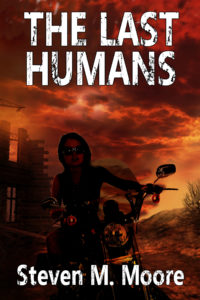Magic vs. science…
[Note: This can be considered a continuation of last Thursday’s post.]
Arthur C. Clarke’s quote is a good way to start this article: “Any sufficiently advanced technology is indistinguishable from magic.” This is more than a glib remark from an old sci-fi writer. It is an important statement about technology.
Imagine a caveman from Earth’s prehistory holding a smart phone. He can’t call anyone and no one can call him, but he can hit a video replay icon, see the video unfolding, and drop the phone as if it were black magic. (He might react the same way with a mirror, of course.)
If we can’t explain something, we call it magic…or something fancier to make our ignorance more palatable. That’s how the phrases “dark energy” and “dark matter” came into existence—physicists are very inventive about hiding their ignorance. I don’t think they’d consider themselves in the same class as Ugh the caveman, but I don’t see much difference sometimes—Clarke probably wouldn’t either. (Of course, I could be wrong. For years I thought the Higgs field was just a mathematical device to generate spontaneous symmetry breaking in the electroweak theory of Salam and Weinberg.)
Dark energy and dark matter express our ignorance about how to explain certain observed phenomena, though. It’s a bit different when we consider phenomena that seems to be more blatant about contradicting known physical laws. There’s magic in the extrapolation of the former needed to create good sci-fi stories. That magic differs from that used in fantasy stories. The boundaries are fuzzy, though, between these two situations.
Paranormal activity—the use of psi powers—has been featured in fantasy and sci-fi stories for a while. Unlike dark energy and dark matter, which was invented to “explain” some observed phenomena, paranormal activity has never been observed. That amounts to a double whammy against it.
Like time travel, I haven’t included psi powers very much in my sci-fi, in spite of a long-standing tradition of sci-fi authors of using it as a plot device. I generally consider psi powers to be more in the realm of fantasy. Yet in the three books of The Chaos Chronicles Trilogy Collection, I include psi powers as a plot device, and in Sing a Zamba Galactica, the second book, I consider time travel. Let me fall back on Mr. Clarke’s quote, though, to put both back in the hard sci-fi realm in order to assuage my guilt.
A.B. Carolan’s new book Mind Games goes farther. We have robots, but the androids go beyond commercial robots available today—these don’t exist either. So what does A.B. do? He writes about trying to give androids psi powers. And he plops this down in the hard sci-fi universe I created.
Considering the aforementioned collection, I suppose he’s justified. The story is another sci-fi mystery for young adults where the main character Della wants to find out who murdered her adopted father. He had always told her to hide her powers, but she needs to use them all to solve the mystery.
Is this sci-fi or fantasy? Maybe those labels don’t matter. The main question might be: Is it a good story? You can read it and tell me via your reviews or emails.
I generally prefer a scientist’s approach in my sci-fi writing, taking known science and extrapolating it far beyond where a practicing scientist might go (any extrapolation is always dangerous), without contradicting current knowledge. Maybe the psi powers in A.B.’s book and my own are more an application of Clarke’s point of view than J.K. Rowling’s, more akin to physicists dark energy and dark matter and an expression of our wonder and ignorance about what might be true. Not fake science, just wild extrapolation far beyond what’s now known so that the science just seems like magic. Is Ugh the caveman smiling?
***
Comments are always welcome.
The Last Humans. Penny Castro is on a forensic dive off the SoCal coast for the LA County Sheriff’s Department. When she surfaces, she finds her fellow deputies and a witness dead from a virulent contagion. Follow her adventures as she struggles to survive in a post-apocalyptic world. Available in ebook format on Amazon and Smashwords and all the latter’s affiliated retailers (iBooks, B&N, Kobo, etc) and in print on Amazon and in your favorite local bookstore (if they don’t have it, ask them for it). This novel was published by Black Opal Books. Visit their website to see a treasure trove of great reads. Support small presses and their authors.

Around the world and to the stars! In libris libertas!
